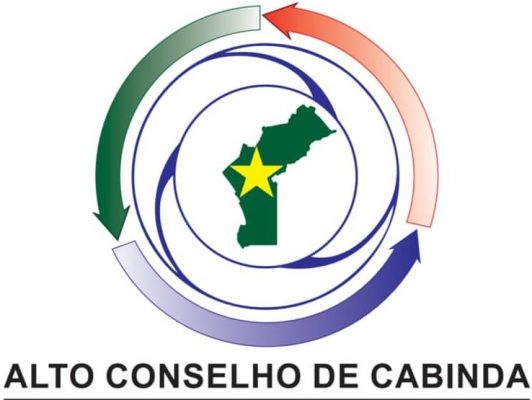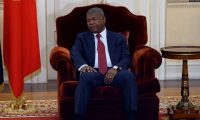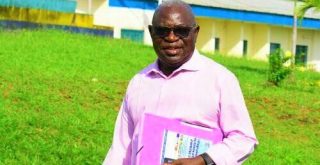In front of the irreversible determination of the patriotic and nationalist movement Cabindais towards its total sovereignty, in front of the irrefutability of the obvious arguments presented to demonstrate, a posteriori and a priori, the truth of this fact. Finally, in the face of the winds of democracy and freedom blowing around the world which have turned the tide of history since the collapse of the Berlin Wall in 1989, and, with the dazzling and fulminating awakening of nationalities in Europe from the East yesterday in the orbit of the former USSR and even within the latter, and closer to us with the accession to national and international sovereignty of Eritrea and South Sudan, the Angolan government, in its diplomatic offensive which aims to erase the Cabindian state from the map of Africa, appeals or now evokes, its last argument to want to justify its stay or its illegal occupation in Cabindian territory – that of the untenable Cabindais micro-state – an argument, moreover, raised by the Portuguese communists in the aftermath of the coup d’état of April 25, 1974 in Portugal, for fear of being engulfed in the Democratic Republic of Congo (DRC), ex-Zaire or annexed by the Congo. Meanwhile, the current President of UNITA, in his latest statement on the future of Cabinda, returned to the possibility of being annexed by a neighbor if Angola ever let go.
The present manifesto no longer intends to demonstrate the fragility and the unfoundedness of this argument by resorting to arguments of a cultural, sociogeographical or historical nature which per se (of themselves) already largely bear witness to the specific singularity of the Cabindian territory and its people in the whole of the current Angolan territory. In doing so, our angle of attack will follow the vector of United Nations international law as a manifestation of man’s deepest aspirations and the current vocation of all mankind towards democracy and deep internal reforms in many. States of the world.
1st Thesis : International and universal law
The General Assembly of the United Nations in the Declaration on the concession of independence to colonial countries and peoples adopted on December 14, 1960, specifies, we quote: “Convinced that the process of liberation is irresistible and irreversible and that, in order to ‘avoid serious crises, it is necessary to put an end to colonialism and all the forms of segregation and discrimination which accompany it ”, it is obvious as a consequence, that the right of peoples to dispose of them- same is an inviolable and inalienable sacred right.
In the same declaration, the General Assembly, by expressing the faith of the peoples of the world in fundamental human rights, in the dignity and worth of the human person and in the equal rights of men and women, expresses it equally and without discrimination for nations large and small.
In the light therefore, of the statement cited above, the argument or the concept of microstate loses its citizenship and we cannot continue to sacrifice the aspirations of an entire people and to condition its self-determination by the simple fact of its smallness.
In addition, Cabinda, like any other nation large or small, brings together the three basic elements of a state: territory, population (with its historical, linguistic and cultural unity) and recognition.
As for the first two elements, the territory of Cabinda, whether it be its territorial extent or its population density, is by no means the smallest or the least populated among the independent or still struggling states of the world. According to the latest statistics, the current population is estimated at 800,000 inhabitants and in 2025 it will be one million (1,000,000) inhabitants.
Regarding the third element, recognition, it will be the subject of the second thesis because, not only in the current geopolitical, strategic and diplomatic context, it is no longer a question of declarative recognition as yesterday several states of the world, especially the most direct neighbors of Cabinda, but it will also allow us to banish the basis of Angolan paternalism and protectionism based on rumors according to which the DRC and the Congo and certainly Gabon, if the latter state was a direct border with Cabinda, covet Cabinda.
2nd Thesis : recognition of the State of Cabinda
To recognize in a people its right to self-determination is to implicitly recognize the independence of its territory. However, from the first hours following the Portuguese Revolution of 1974, the right to self-determination and independence of the Cabindian people was recognized by several African, European and American countries. Among which we will cite, by way of example, Portugal, a former colonial power, the Republic of Congo and the former Zaire, the current DRC, border countries of Cabinda, Gabon, Uganda, France, Senegal, Ivory Coast, the United States, even China…
Whether it is the Congo and the DRC, insofar as these two brotherly countries have spoken openly before their peoples, parties and respective governments of the time, in the face of history and all of humanity for the self-determination of the territory of Cabinda, it would therefore be contradictory and even reprehensible if these same countries still had ambitions to swallow up, annex or share Cabinda as Angolan paternalism claims.
We believe that peaceful coexistence between States and Nations of the world is possible thanks not only to man’s intrinsic desire for peace, but also to multifaceted cooperation treaties which justify the interdependence between States, large and small. What has just been said is more than enough to rule out the argument put forward by the Government of Luanda that as soon as it drops the apple, it will either be swallowed or by the R.D.C. or by the Congo or so, shared between the two. This also clears away the Unita point of view which claims that once independent Cabinda would lose the colonial heritage, especially the Portuguese language. On this subject, it must be said that even if it is necessary to admit with socio-political realism of course, (geopolitical situation obliges) – linguistic dualism in an independent Cabindais state, it must also be recognized with socio-cultural realism that the Portuguese speakers constitute a coherent sociological majority impossible to be crushed or drowned. In addition, it should be noted that Cultural Identity is a force-reality with secular origins and therefore ineffaceable with time and with external influences. With this reality, we approach the third thesis.
3rd Thesis : on the awakening of nationalities and democratic movements
The awakening of nationalisms and democratic movements is an irrefutable and obvious reality nowadays that it was in Africa and especially in Western Europe and Eastern Europe yesterday under the guarded protection of the Soviet Union. The common denominator is that this awakening finds its socio-historical roots in Culture.
In this regard, no one will doubt the existence of the unique Cultural Identity of the Cabindais people already even within the Old Kingdom of Kongo from which they separated since the 15th century.
Basically and ultimately, we will say that if, on the one hand, the nationalist people of Cabinda are fully aware of the fact that they do not lack human and natural resources and potential for self-management, on the other hand, they are do not ignore that the current vocation of humanity is oriented towards large groups. Nevertheless, the question of nationalities remains alive and current. This is the lesson that comes to us, not only from the eastern countries which for fifty years were under the orbit of the USSR, but also and above all from certain republics even within the Soviet state.
The Cabindais people do not refuse to be part of the great Angolan whole. But, he thinks that the process which has integrated him into the Angolan family needs to be reviewed. A process to review. A process to be reviewed, because it constitutes an approach that the people of Cabinda must undertake freely and in a sovereign manner. He alone, in principle, has the full right to choose the forms, modalities and limits of belonging to the large Angolan sub-regional family. And this, for several reasons: first, the Cabindan people own a territory other than that of Angola. Finally, it has its own Culture, History and Identity.
In doing so, the Cabindan people cannot join the Angolan family as long as they continue to depend in all on Angola even though the Angolan economy is supported by oil from Cabinda. There is therefore a relationship of dominant-dominated, master and slave or while the slave frees himself before considering any form of equitable and lasting cohabitation. This is an immediate step. Because, on the one hand, it will make it possible to heal all the wounds resulting from the Angolo-Cabindais conflict on the other hand, it will guarantee not only the recognition and respect of the Cabindese identity, but also the protection and consolidation of socio-economic interests. economic activities of Angola in particular and those of the Sub-Region, the Continent and the world in general.
This is why, in conclusion we take this opportunity to launch a Fraternal and Peaceful appeal to the Angolan Government and the MPLA Party, the Angolan opposition parties, the Angolan Civil Society and the International Opinion in order to help the two parties to meet around a round table, thus and objectively responding to the proposals and calls for peace from the Cabindese side with a view to a final, consensual and lasting solution to the Angolo-Cabindian conflict for a real detente, serenity and development of our Central African Sub-Region.
By : BIKO RUBRO













